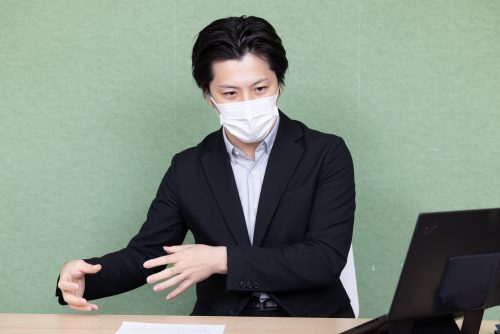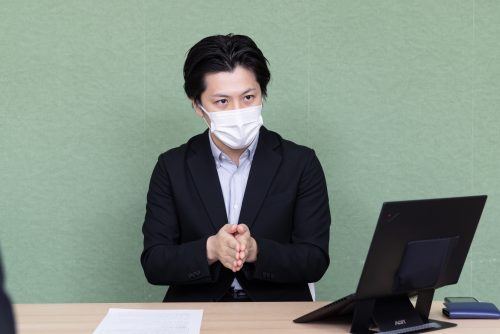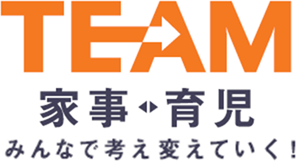With the start of the “Postpartum Papa Leave” system in October 2022, it is expected that men’s participation in childcare will increase. On the other hand, it is not widely known that not only women but also men can suffer from postpartum depression. We interviewed Dr. Shodai Hirano, an obstetrician-gynecologist, industrial physician, and medical writer, about “postpartum depression” in men.
One in Ten! Postpartum depression” in men
Postpartum depression” is a mental health disorder that occurs during the child-rearing period within the first year after childbirth and is caused by child-rearing as one factor. In recent years, as men have begun to participate in child rearing, cases of depression occurring in men have also been observed. According to an overseas survey, about 5% of men develop postpartum depression, while a Japanese survey found that about 10% of all men are at high risk of moderate or severe mental health problems.
I first decided to address the issue of male childcare because I had questions about men’s behavior that I saw and heard from expectant mothers in clinical settings. Many men had little knowledge about pregnancy or did not take it into consideration, and I felt that “men know too little about pregnancy and childbirth. However, when I started to investigate the actual situation of fathers in order to tackle the problem, I found that some fathers were worried that they did not even know what they should know, and at the same time, I became aware of the problem of “postpartum depression.
I used to think that “education for men is necessary,” but through this survey, I have changed my mind to think that “support for fathers is necessary,” and I have a sense of crisis about the current public trend of “promotion of men taking maternity leave,” which is proceeding without much support for fathers. In fact, there are many fathers who are feeling hardship without being noticed.

Three patterns that drive fathers away
We believe that there are three main patterns of “postpartum depression” in fathers.
The first is difficulty in balancing childcare and work. This is a pattern in which a person tries hard to balance childcare and work, but because he or she is responsible for childcare while the work load does not decrease, it becomes difficult to balance the two, resulting in a mental health disorder.
The second type is one caused by isolation from society. The second is due to isolation from society. The mothers are exhausted by endless childcare, and at the same time, they feel anxious about being left behind from their work. This has been a problem for mothers for some time, and we expect it to increase as the number of mothers taking long-term childcare leave increases in the future.
Third, there is “toxic masculinity. Harmful masculinity” refers to the stereotype that “men should be this way because they are men,” and is often seen among Japanese men. They are often driven to work harder now that they have a child, and they increase their workload, change jobs, and impose multiple burdens on themselves.
Both patterns are likely to be preventable with appropriate support.
Support for fathers in need – What each of us can do in our respective positions
It is important for everyone to know that “all people who raise children,” including fathers as well as mothers, are eligible for support. It is important for everyone to know that “all people who raise children,” including fathers as well as mothers, are eligible for support.
<Family
It is important for the closest family members not to “isolate” fathers. In Japan, there is a strong system of “foster home births” and other forms of child-rearing that pull fathers away from child-rearing. The start of child-rearing is important. If you are going back to your hometown, go home together or ask your parents to come to your hometown so that they can be actively involved in child-rearing.
It is also important to recognize that raising children is difficult for a couple to do alone. On top of that, asking for help from those around you if you need it, and knowing and creating support sources will help protect you. This is not limited to the postpartum period.
<Company
Companies are working to promote the use of maternity leave by men, but in the future, we would like them to focus on “before and after” maternity leave as well. It is important to give consideration to accompanying a pregnant woman for medical checkups and to “give consideration to balancing childcare and work” rather than “work as before after the childcare leave”. Currently, many men feel that “postpartum depression” is a work burden plus childcare. The Child Care Leave Law also clearly states that employees who are raising children may request restrictions on overtime work. It is also important for companies that have industrial physicians to inform their employees that they can consult with an industrial physician at any time if they have any concerns or questions about childcare or balancing work and childcare.
<Administration
I believe that the government needs to increase the number of fatherhood classes in the community so that information on childbirth and childcare is available to fathers. Although support for mothers is very generous, such as motherhood classes and pregnancy checkups, fathers do not receive sufficient support or knowledge. I would like to see support for fathers as well as mothers, while utilizing existing programs.
The father’s own mindset change.
It is important that fathers themselves recognize the need for support. And beware of “harmful masculinity” thinking, which is clearly a high risk. The “motherhood myth” that “mothers can raise children naturally” is also a problem, but the belief that “because I am a father, I must be strong” or “fathers must support their families as the mainstay of the family” and the actions that come from this belief can drive you into a corner. I urge you to face your family from the perspective of “parents,” not “because they are fathers or mothers.

Entering the Era of “Father 3.0
The trend toward men’s participation in childcare is progressing, as evidenced by the revision of the Child Care and Family Care Leave Law. This is why society as a whole must change the role of fathers. If the “strong father” of the Showa era was “Father 1.0,” then “Father 2.0” has been the “successful ‘ikumen'” since the 2000s. The positive messages of these “dekiru ikumen” have certainly promoted the participation of men in child-rearing, but I believe that there should be a greater variety of fathers. The future is an era of “Father 3.0,” or “fathers who can become anyone and enjoy child-rearing,” rather than seeking an “ideal father figure. I would like to promote the image of fatherhood in the coming era as “Fatherhood 3.0” and emphasize the need for support for fathers.











